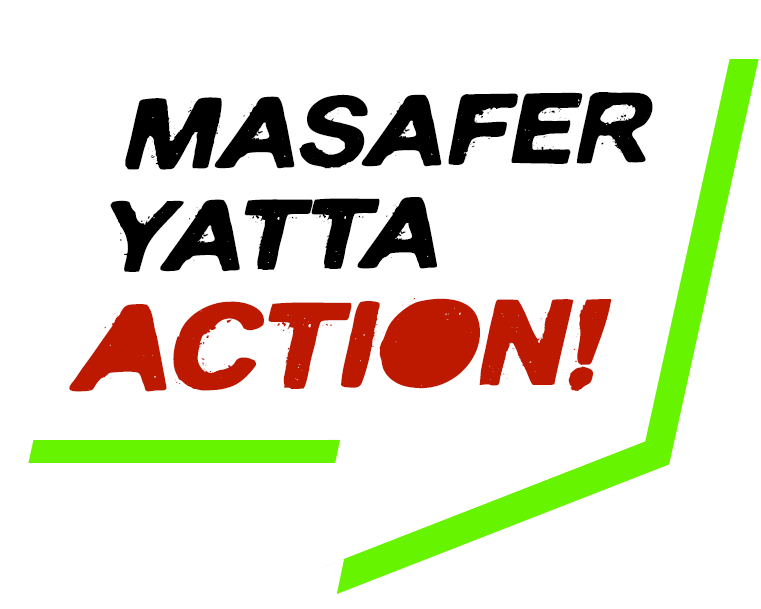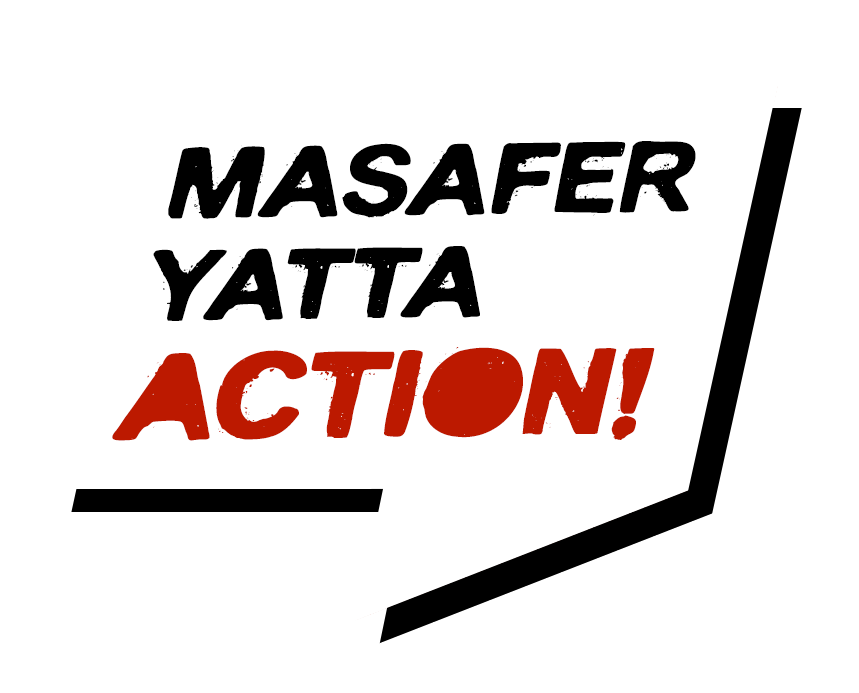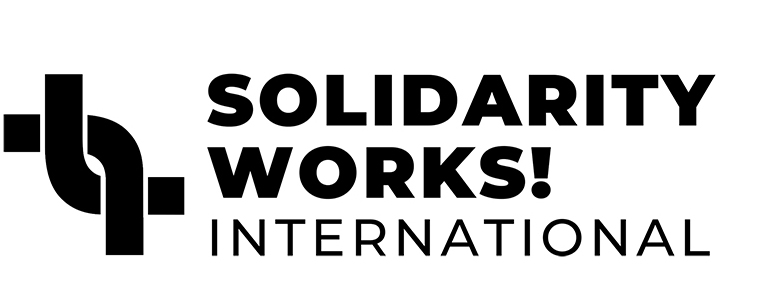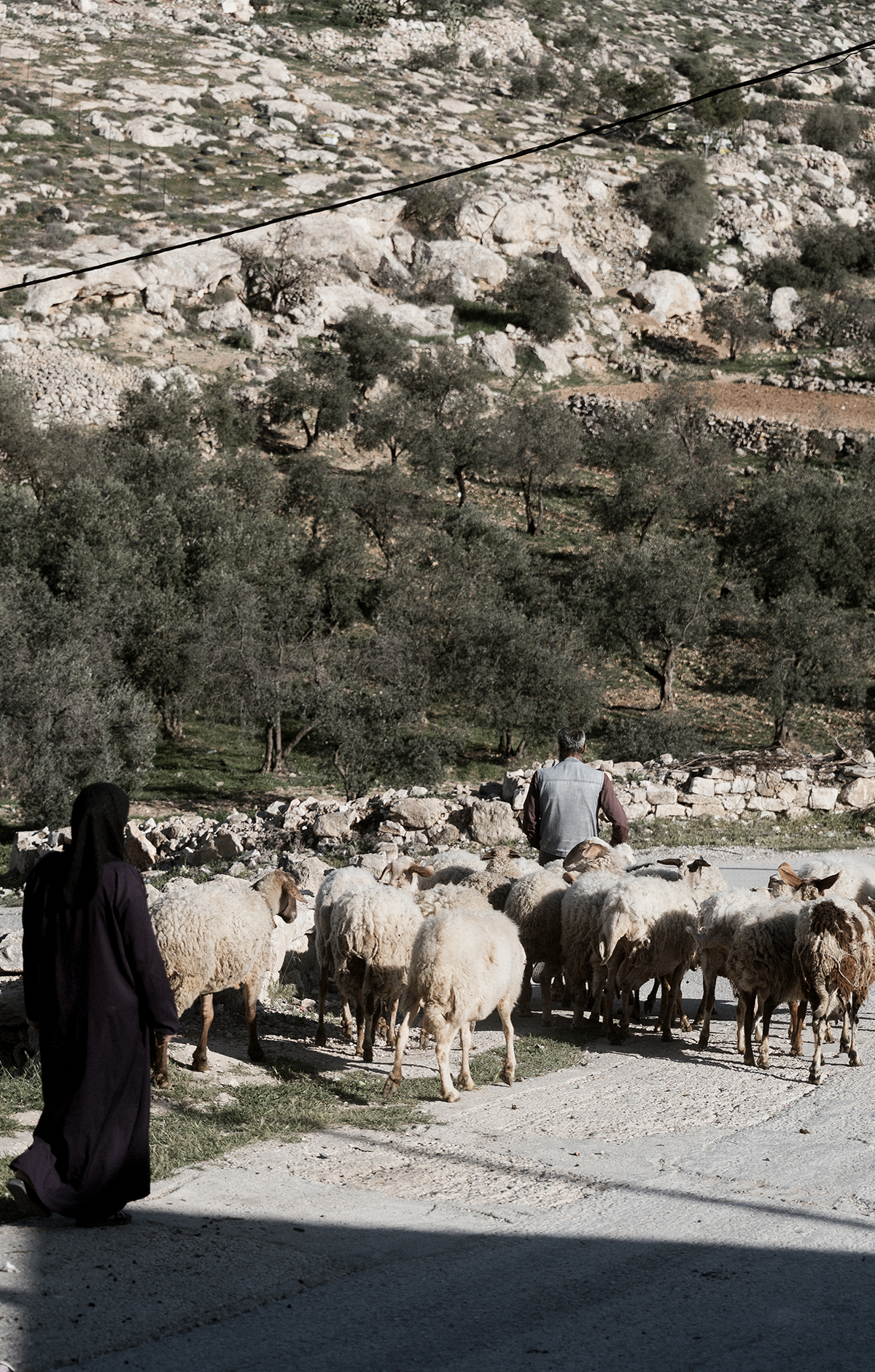
TAKE ACTION NOW!
Be present!
Join our emergency initiative Be Present! to mobilize civil society worldwide. Join the community of MY Action! and start planning your visit. It’s free and we will help you in convincing your family and friends, why there is no reasonable excuse not to not Be Present.
Communities in the West Bank, and particularly in Masafer Yatta, remain largely isolated from the outside world. Despite decades of international attention to Israel’s occupation, settlements, and ethnic cleansing, very few visitors experience daily life on the ground. This isolation, imposed by the propaganda of the occupation, limits real understanding and empathy. By simply being present, you can witness daily life, listen to personal stories, enjoy a stunning landscape, experience centuries-old culture, and share your experiences with the world.
Solidarity requires you to Be Present! Only real experiences build authentic solidarity, amplify Palestinian voices, and make the struggle for justice and human rights tangible. Whether you are an occasional visitor seeking first-hand experience to foster understanding and compassion within your community, a journalist, a researcher, or someone interested in supporting Palestinians in their decades-long unarmed civilian protection efforts, being present is essential. The people of Masafer Yatta Action! know the region well and have extensive local contacts, ensuring that every visit is safe, meaningful, and respectful of the community.
What is Unarmed Civilian Protection (UCP)?
Learn more about Unarmed Civilian Protection (UCP)
Unarmed Civilian Protection (UCP): A Pillar of Global Solidarity
Unarmed Civilian Protection (UCP) is a methodology for civilian protection grounded in nonviolence, solidarity, and community agency. It involves civilians physically protecting other civilians in violent conflict zones without the use of weapons. UCP encompasses various practices, including protective accompaniment, protective presence, early warning and response, interpositioning, monitoring and documentation, relationship-building, and supporting local self-protection capacities. These approaches aim to create a protective environment where civilians can maintain their daily lives, engage in dialogue, and sustain civil society functions even under threat.
UCP draws deeply on the social fabric of mutual assistance and solidarity under threat. Across societies and historical periods, communities have relied on informal mechanisms of protection, neighbours offering shelter, elders mediating disputes, religious and social networks intervening to calm tensions. These intuitive and collective responses to violence represent the historical roots of UCP.
In Palestine, UCP has been actively practiced for decades. Organizations such as the International Solidarity Movement (ISM), Christian Peacemaker Teams (CPT), and Nonviolent Peaceforce have collaborated with local communities to implement UCP strategies. Academic studies have documented the effectiveness of UCP in reducing violence and supporting Palestinian communities. For instance, research has demonstrated the constructive impact of UCP in Palestine, including reducing violence by Israeli soldiers and settlers, as well as rehumanizing communities and creating space for nonviolent resistance.
Since the late 20th century, UCP has become more formalized and institutionalized through NGOs such as Peace Brigades International, Nonviolent Peaceforce, and Meta Peace Team, which have developed coherent methodologies and documented field experiences. Today, UCP is recognized as a distinct and credible practice situated at the intersection of peace studies, conflict management, and human rights protection. It combines theoretical insights about how nonviolence, local agency, and civilian immunity function in violent settings with empirical fieldwork that demonstrates measurable impact in reducing violence and enabling social resilience.
Recent scholarship, such as Unarmed Civilian Protection: A New Paradigm for Protection and Human Security (Furnari et al., 2023) and entries in the Palgrave Encyclopedia of Peace and Conflict Studies (Oldenhuis et al., 2021), emphasize UCP as both a practical intervention and a normative framework for rethinking security from a civilian and community-cantered perspective. UCP offers an alternative to militarized peacekeeping, grounding protection in presence, relationship, and legitimacy rather than force.
The international legal framework has failed Palestinians over the past 75 years, providing no protection against occupation, violence, and ethnic cleansing. Today, the global rule of law is facing a profound crisis, with many international observers warning that the integrity of international law itself is collapsing. In this context, UCP emerges as an essential practice that empowers communities to protect themselves and uphold their rights—and thus the rights of all of us.
UCP is not a universal remedy; its success depends on context, acceptance by conflict parties, and available resources. However, it represents a growing field of practice and research that redefines protection in the 21st century—not as the projection of power, but as the organization of solidarity.
For further information and reading:
Unarmed Civilian Protection: A New Paradigm for Protection and Human Security (Ellen Furnari et al., 2023)
Palgrave Encyclopedia of Peace and Conflict Studies (Oldenhuis et al., 2021)
http://www.creating-safer-spaces.com, Department of International Politics Aberystwyth University, Penglais, Wales, UK
Unarmed Civilian Protection, Louise Ridden, Berit Bliesemann de Guevara, in Humanitarian Exchange Magazine, Issue 82, January 2023, article 10.
(https://odihpn.org/en/publication/unarmed-civilian-protection/)


